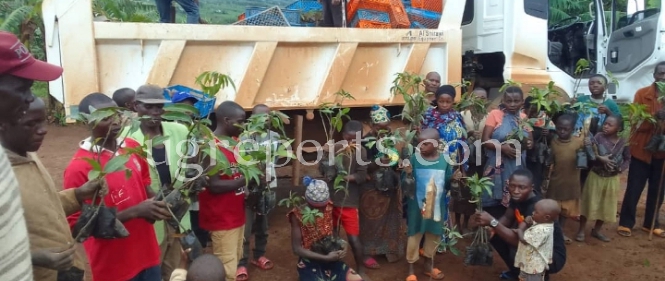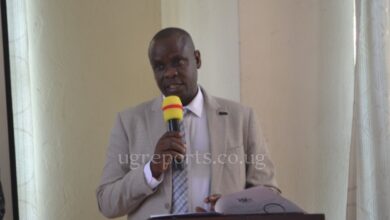Promoting inclusive natural resource management among refugees
Referring to Uganda's National Environment Management Authority's (NEMA) report for 2018–19, forests are disappearing at a rate of 2% per year, which is the highest in the world, equivalent to 6,000 hectares of trees cut down per month. With this rate, by 2050, forests would have disappeared.

By Doreen Nasiima
Kamwenge: According to the 2020 World Bank report, nearly all refugees (96.7%) and their host communities (97.6%) rely on wood fuel for cooking, averaging 2 kg per person per day.
In the Rwamwanja refugee camp in Kamwenge district, which hosts 94000 refugees from the Democratic Republic of Congo, environmental challenges can be hard to overcome, but the office of the prime minister, together with implementing partners, has found a creative solution for improving the livelihood of refugees with startup capital and kits, especially those who voluntarily vacate wetlands.
Dominic Owor, the Nsamizi project (under UNHCR), environment and energy officer at Rwamwanja settlement, says that since 2020, they have managed to plant over 370 ha of select tree species, including fruit trees, indigenous species, and bamboo, for water conservation, both for refugees and host communities.
“We get seedlings from NFA and distribute them to farmers within the settlement and the nearby host communities, and in this way, a total of 243 ha of woodlot has been planted in the host in addition to 127 ha of block tree plant planting in the settlement since 2020,” says Owor.
He adds that for individual farmers who do boundary tree planting and compound tree planting, at least 300 individuals are reached per season, with 5 to 10 seedlings on average per rainy season.
Owor explains that to avoid tree cutting and reduce wood fuel dependence, Nsamizi promotes the use of energy-saving rocket Lorena stoves, which have the potential to reduce consumption rates by 60 to 70% and were able to construct 2000 stoves in 2000 households per year.
Julius Kamuza, deputy commandant in the prime minister’s office at Rwamwanja settlement, noted that with aid partners, people who voluntarily move away from wetlands and request assistance are supported with training or start-up kits to earn an alternative living.

“We give startup kits like beehives, chicken rearing, fish ponds, and brick making to people who vacate wetlands and allocate them to hilly places, and others to people who vacate the wetlands and swamps they have encroached on,’’ Kamuza narrated.
Yadeshi Biira, a mother of seven and a resident of the Nkoma C Rwamwanja refugee settlement, said that after voluntarily moving away from wetland farming, they were given a startup capital of 30 chicks each and are now rearing 300 chicks from her small space and using the drops in her backyard vegetable garden.
“Since most of us refugees were scrapped from getting food shares by OPM, we had nothing to do because the spaces allocated to us were too small to sustain us, so we had to start using swamps for agriculture, but after moving out voluntarily and being given start-up kits, I was able to take my children to nice private schools,” says Biira.
Dorah Uwimana says that they are a group of 10 women that were funded with a start-up kit to start a briquette business using cow dung and waste, thus promoting environmental protection since the ashes can be reused to make more and are cheaper than charcoal from trees.

“Our husbands were dealing in the charcoal business, and the vegetation was getting dry with nothing left to cut, and that’s when we decided to make a group of women who were offered a briquette-making machine and training about the skill of which now we make a lot of money since projects are bought from us at 2000sh a kilogram,” adds Uwimana.
Dominic Owor says that mindset change is the only permanent measure that can revamp Rwamwanja’s environment by involving school-going children and teaching them the importance of tree planting and environmental conservation.
Referring to Uganda’s National Environment Management Authority’s (NEMA) report for 2018–19, forests are disappearing at a rate of 2% per year, which is the highest in the world, equivalent to 6,000 hectares of trees cut down per month. With this rate, by 2050, forests would have disappeared.
Do you have a story about your community or an opinion to share with us? Email us at theugreports@gmail.com.






